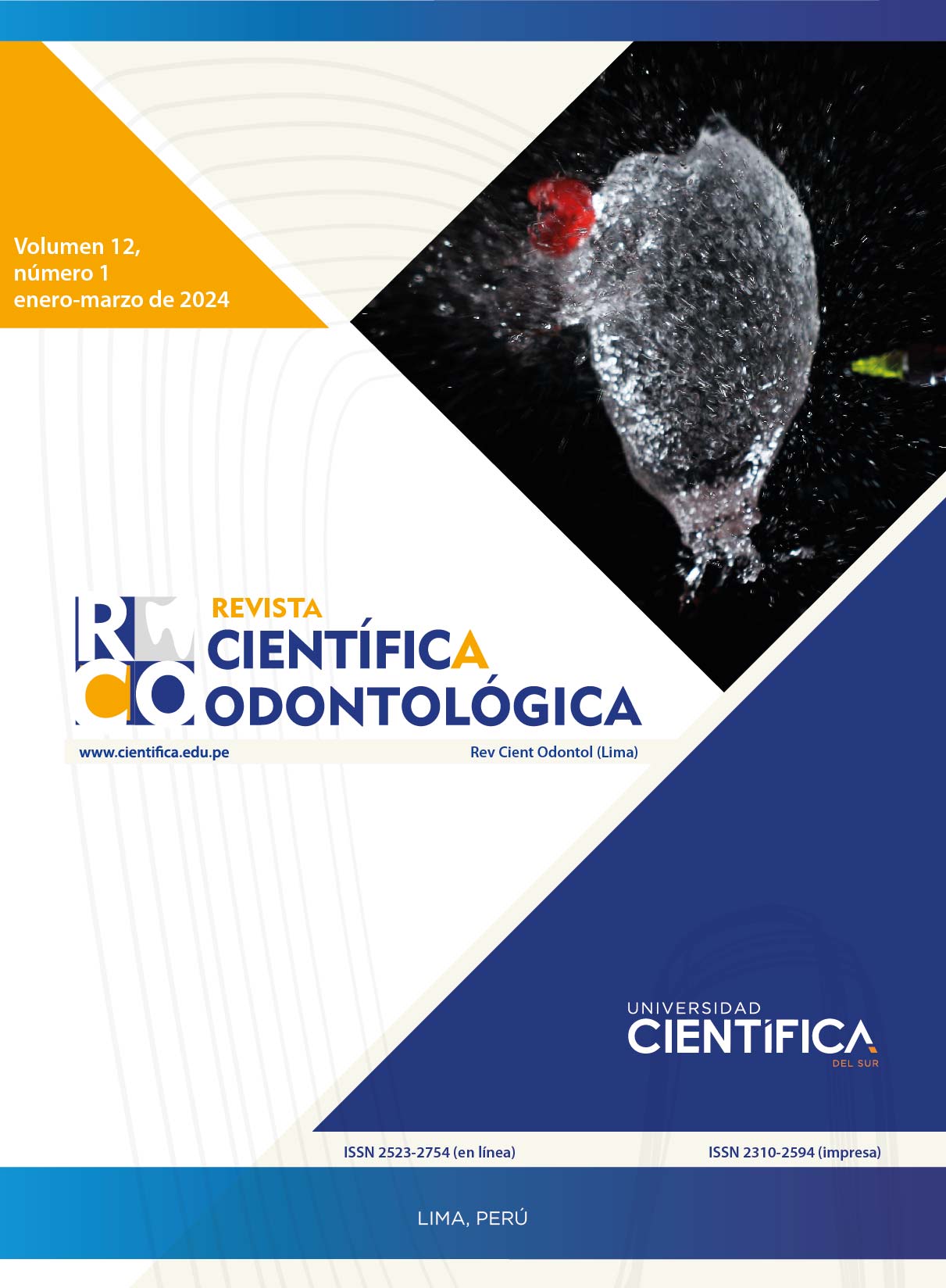Criteria for choosing prosthetic biomaterials according to their physicochemical properties for anterior and posterior sectors. A comprehensive review
DOI:
https://doi.org/10.21142/2523-2754-1201-2024-188Keywords:
prosthetic biomaterials, ceramics, dental alloy, oral rehabilitation, physical properties, chemical characteristicsAbstract
Objective: To describe the existing knowledge about metal-free prosthetic biomaterials according to their physicochemical properties and based on this, define criteria for their placement in both the anterior and posterior sectors. Materials and methods: A digital search was carried out in the databases: PubMed/Medline, Scopus, Web of Science and Google Scholar of the literature published in the English language without time restrictions and included original articles such as case reports, retrospective and prospective studies, narrative, comprehensive, systematic reviews and meta-analysis. Meanwhile, short communications, editorials and articles in a language other than English were excluded. Results: 40 articles were evaluated, published between 2000 and 2023. The main characteristics and physicochemical properties of ceramic biomaterials such as zirconia, feldspathic based ceramics, lithium disilicate and alumina, among others, were analyzed and summarized. In addition, certain criteria were defined based on the available scientific evidence on the use of different ceramic systems both in the anterior sector and in the posterior sector for patients who need some type of prosthetic restoration. Conclusions: Among the different metalfree materials used for the construction of fixed dental prostheses, zirconia has been shown to have better aesthetic, biomechanical and biocompatibility properties, which makes it a candidate material for the rehabilitation of partially edentulous patients.
Downloads
Downloads
Published
Issue
Section
License
Copyright (c) 2024 América Lucero Guillén-Martínez, Mario Alberto Alarcón-Sánchez

This work is licensed under a Creative Commons Attribution 4.0 International License.

Este obra está bajo una licencia de Creative Commons Reconocimiento 4.0 Internacional.












